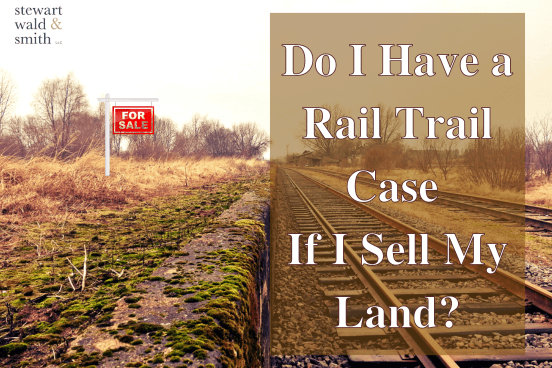
One of the questions Stewart, Wald & Smith is often asked is: “I owned my property on the date the railroad line was authorized for conversion, or when the taking of land occurred, and I’ve filed suit, but what happens if I sell my land before the lawsuit is over?”
This is a fair question, and the answer is simple. Nothing happens.
In rails-to-trails cases what matters is who owned the land on the official date of taking in the rails-to-trails case. This is the date when the decision was filed authorizing the conversion to a rail trail. The date of taking is the date when the land in the railroad right-of-way, which should have reverted to your ownership, was authorized for trail use.
In rail trail cases, before the government authorizes trail use, the railroad files certain documents with the United States Surface Transportation Board. One of those documents is an official notice announcing the railroad's intention to abandon its railroad line. Pursuant to state law, when the railroad abandons its line, it is considered to have abandoned its railroad easement as well. This means the land would no longer be burdened by the railroad easement and it would come into the full ownership of the landowner adjacent to the railroad corridor.
This state law is upended by the government’s authorization of trail use on the railroad corridor. If not for the government’s authorization, the land within the railroad corridor would be owned by the adjacent landowner. Therefore, on the date of authorization, the landowner loses something – they lose their right to repossess the land, and the land in the right-of-way remains burdened, now by a trail.
Imagine that you, as the landowner, want to sell your property after the government gives authorization for a rail trail to be built in the corridor along your property. You could report to the buyer of your property that the railroad right-of-way land is yours and would be part of the land you are selling because, upon abandonment of the railroad, that land should revert to you.
But in reality, the land in the railroad corridor will not revert to you (because it has been authorized for trail use or already converted to a trail). So, the land within the railroad corridor has no present-day value to you. It has no market value. No one in their right mind would pay money to you for the land burdened by a recreational trail when buying your adjoining property.
The adjacent landowner has no more a right to private use of the land within the railroad corridor than any member of the public. You cannot build any structures on the land, you cannot keep people off the land, and you cannot use it as personal ownership in any way.
That loss of market value takes place and is only personal to the owner of the land adjacent to the railroad corridor on the date of the government’s authorization for trail use. This would be the same landowner who has a valid claim for compensation in a rails-to-trails case. Since the buyer is not paying for the land in the right-of-way (because why would he?), and he did not own the property along the railroad prior to the abandonment of the railroad, he would not be entitled to compensation.
You, on the other hand, sold your property to him for less than it would have been worth if the railroad right-of-way land would have simply been abandoned. That makes the loss of market value personal to you, and only you.
Rails-to-trails litigation is complex. A landowner’s right to compensation is difficult to conceptualize. To better understand the stakes, it is important to keep in mind what is being lost.
What is lost in a rail trail case? Land.
Specifically, the piece of land within the railroad right-of-way that was prevented from returning to your ownership due to the recreational trail. When you sell your land, your damages are realized. This is why you have a valid rail trail case, even after you sell your land along a future rail trail.

